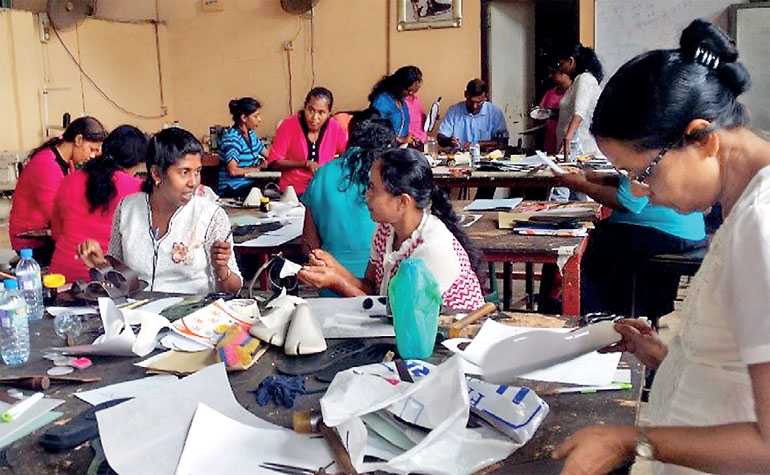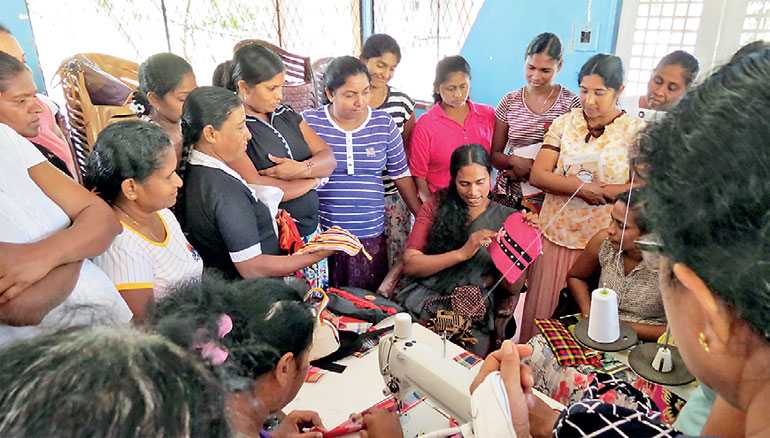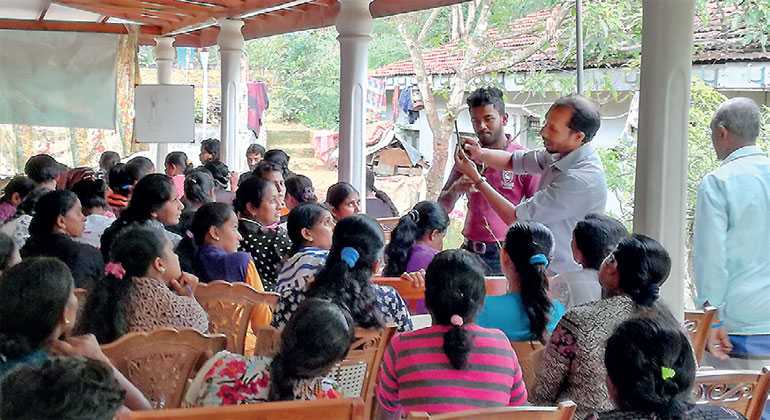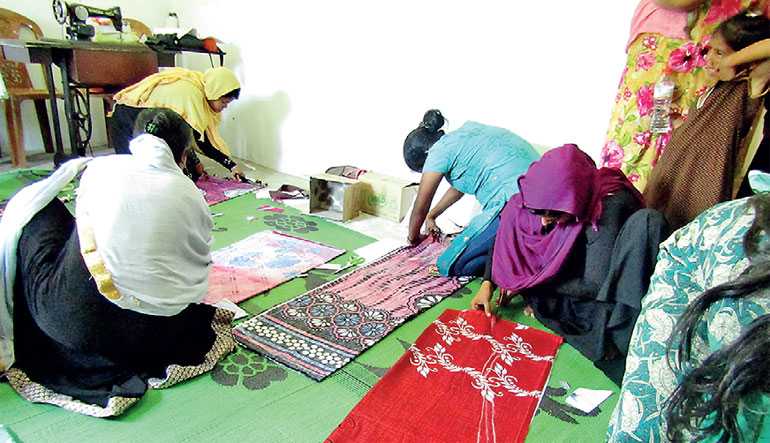Sunday Feb 22, 2026
Sunday Feb 22, 2026
Friday, 8 March 2019 00:00 - - {{hitsCtrl.values.hits}}
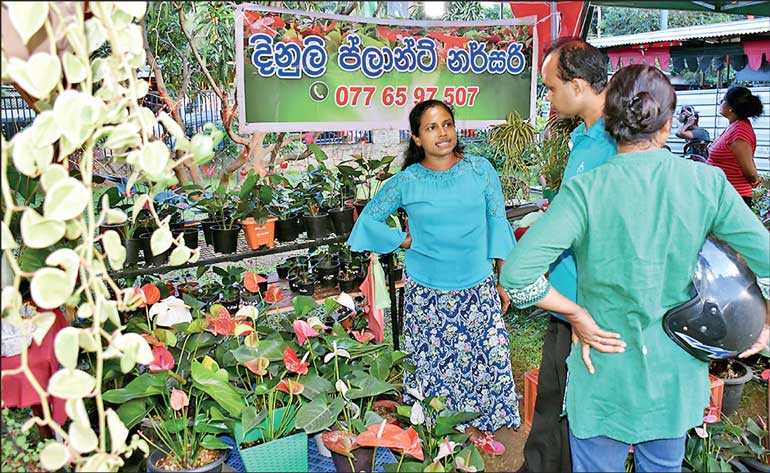
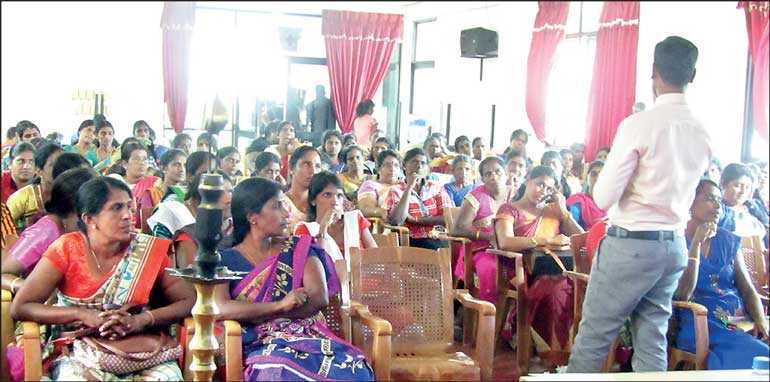
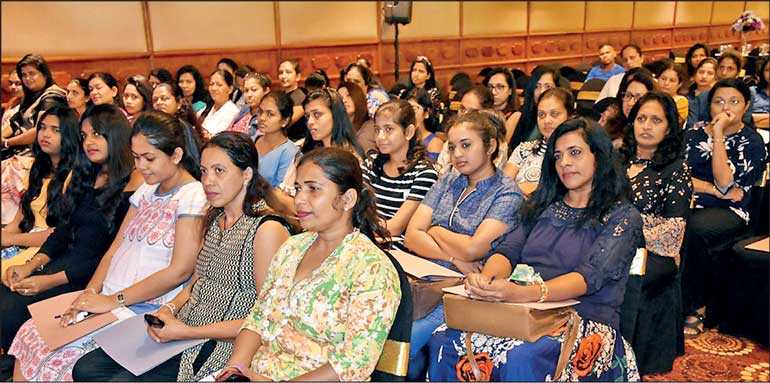
Women have increasingly been moving away from the traditional role of being a mother, daughter, sister and wife to play an active role in contributing towards a country’s economic growth. Therefore, empowering women has become vital within the development framework of a country.
The fact that female empowerment is given attention in both the United Nations’ Millennium Development Goals and Sustainable Development Goals goes on to show that the whole world is very much concerned about the role of women in economic development.
Sri Lanka’s population gender ratio also illustrates a female population exceeding 50% of the total population and the same pattern is evident district-wise. Therefore female contribution has become vital in increasing the household income as well as improving the country’s economy as a whole.
However, female contribution is already significant in sectors vital to the Sri Lankan economy such as the tea industry, garment industry and foreign employment. Additionally, data by the Department of Census and Statistics shows that the majority of Sri Lanka’s professionals is female. However while female representation and contribution is very high in certain sectors, the percentage of economically active females in the total population is as low as 36%. This is common for all districts in Sri Lanka. 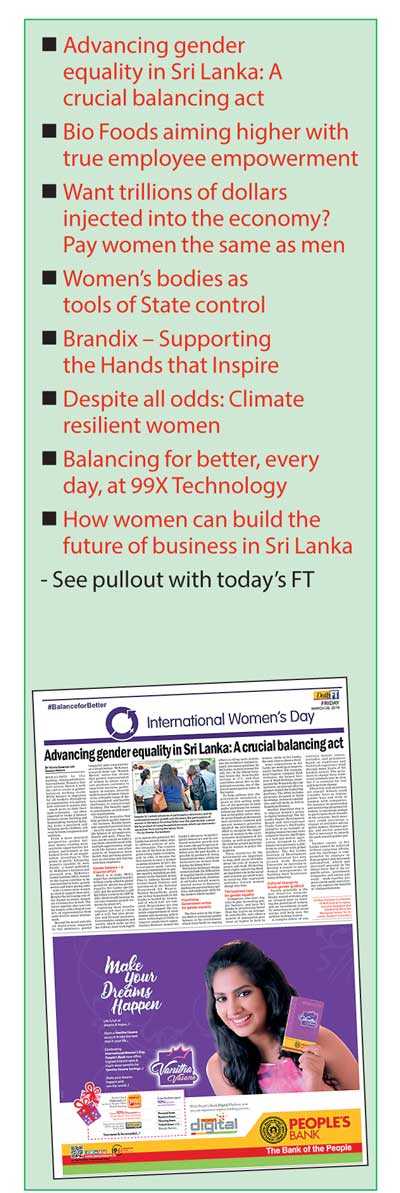
Female unemployment is especially significant in rural populations. Some of the identified reasons for this are, lack of job opportunities within the rural society, lack of part-time jobs, lack of financial literacy, poor knowledge in self-employment including lack of skills and training and problems in creating a marketable product etc. Therefore female empowerment is both a timely and national requirement.
The Central Bank of Sri Lanka (CBSL) gives prominence and special attention to female empowerment initiatives when implementing and executing programs to develop skills and knowledge of those engaged in the Small and Medium Enterprises (SMEs). This is achieved through programs implemented for the sector among other development initiatives by the sixRegional Offices of the CBSL established in Matara, Anuradhapura, Matale, Trincomalee, Kilinochchi and Nuwara Eliya under the guidance and supervision of the Regional Office Management Department (ROMD) of CBSL.
Accordingly, the main focus of these initiatives is to improve financial literacy among women and to provide them the necessary knowledge, skills and training.
Programs to improve financial literacy
Almost on a daily basis we hear stories about problems in the household arising due to lack of household management knowledge amongst women in various parts of the island. It is also noted that lack of financial literacy in women is a cause of rural indebtedness. These women also become victims of illegal financial schemes which have become a problem as evidenced by various social crises which emerged due to heavy rural indebtedness and illegal financial scams in the last few years.
Therefore, programs on financial literacy and financial inclusion targeting women were conducted in 2018 in various parts of the country benefiting more than 9,000 participants. The regional office and the number of women who benefitted comprised Matara: 2,350; Anuradhapura: 1,200; Matale: 2,500; Trincomalee: 400; Kilinochchi: 1,000; Nuwara Eliya: 1,600.
Skills development programs
Taking into consideration the inability of rural women to engage in full-time employment, the ROMDof CBSL together with its regional offices conducted various programs throughout last year and early this year to provide necessary skills and training needed for them to engage in home-based self-employment.
These included programs on floriculture, bee keeping, horticulture, dairy farming, shoe and handbag manufacturing, tailoring, especially sari jacket and draperies, cake making, batik technique, bridal dressing, beauty culture and hair dressing, bonsai, coconut shell products, paper crafting, etc. Throughout 2018 more than 5,000 female participants were empowered through such programs.
Programs to develop SMEs
Having identified the capacity and importance of women entrepreneurs in the small and medium sector, the ROMD and the Regional Offices of CBSL conducted more than 50 programs aimed at entrepreneurial skill development, attitude and personality building, business planning, accounting, budgeting and sales which would aid in the start-up process of businesses. These programs were held in 2018 for more than 4,000 participants. However, when executing these programs by the Kilinochchi Regional Office, attention was also given towards providing some training on accountingfor regional non-profit societies such as rural development societies for women.
Market relationships, buyer-seller negotiating and trade fairs
Regional offices provided assistance to entrepreneurs for sales activities by conducting programs on market relationships, buyer-seller negotiations and through Trade Fairs. Accordingly, five Trade Fairs were held in 2018 at Regional Office level and most participantswere female entrepreneurs.
Opportunities were provided for entrepreneurs to think beyond traditional market concepts in order to identify new market opportunities and build market-based relationships. Exporters and supermarket chains were also invited for these relationship building programs. It helped female entrepreneurs to minimise intermediary costs and increase their profit margin.
Special projects
The Nuwara Eliya Regional Office initiated the process of transforming the Ravana Florists’ Society of Uva Paranagama into a social enterprisenamed Ravana Agro Ltd., which benefited many female entrepreneurs engaged in horticulture in the area. Today, Ravana Agro is being built into a national level business initiative, diversifying into new business activities.
The Matale Regional Office conducted a special project in the Kandy and Matale Districts aimed at developing a selected number of individuals in the handicrafts field as professionals. Skills development, technical training, funding, management and attitude building, etc. were used in these training projects and a majority of the participants were female.
Various handicraft exporters participated at this event to enable these individuals to broaden their market opportunities through buyer-seller meet-ups. This has given women involved in the handicrafts business the opportunity to explore new market opportunities and broaden their level of income. Social media was also taught as a marketing tool, enabling them to broaden product demand.
As a result of information collected at rural indebtedness reviews conducted by the Kilinochchi Regional Office in 2017 in the Jaffna and Kilinochchi Districts, 91 awareness programs on financial literacy were held to improve female financial literacy. Apart from this, Help Desks were set up at Jaffna, Kilinochchi, Mannar, Mullaitivu and Vavuniya District Secretariats to address this same issue. Further, the Kilinochchi Regional Office actively facilitated a soft loan scheme for debt relief initiated by the 2018 Budget of the Government.
Out of an average of about 150 visitors to the Matara Regional Office who come to resolve EPF related matters on a daily basis, 90% are women. Most of these women are from the Koggala Export Processing Zone. A mobile service for EPF facilities was held in 2018 at Unichela Garment Factory for these women, by Employees’ Provident Fund Department of CBSL in collaboration with the Department of Labour at which around 580 women resolved their EPF issues.
Additionally, a number of women were able to benefit from the Central Bank Governor’s visits and Rural Indebtedness Reviews organised by the Nuwara Eliya, Trincomalee and Anuradhapura regional offices in those areas.
Way forward
Measures are already underway by ROMD and regional offices of the CBSL to conduct planned programs on technical expertise, skills required to empower women, provide opportunities for funding and market expansion in 2019.
For example, the first programmfor 2019 aimed at female entrepreneurs was held on shoe manufacturing at the Katubedda Shoe and Leather Manufacturing Institute on 6, 7, 8, 11 and 12 February. Eighteen untrained female entrepreneurs participated at this event and they were taught the basics of shoe manufacturing, choosing raw materials, market knowledge and were trained to manufacture five different types of shoes. Each of the participants was able to create and finish all five types of shoes on their own within the duration of the program.
An interesting feature of this programis that it will be continued as a planned programline-up to help create successful entrepreneurs. Accordingly, participants will be able to gain the latest technical expertise on shoe manufacturing, further training, knowledge and training to start a small and medium enterprise such as planning, accounting and sales, facilitating the background needed for funding and market facilities.
The main objective of this programis to transform these untrained entrepreneurs into fully-fledged entrepreneurs with their own small and medium enterprise by the end of 2019. It is also expected to establish manufacturer societies for these entrepreneurs so that several of them are able to get together and maintain a continuous supply which would in turn help foster local as well as export market connections.
At present, there are many beauty parlours established in all parts of the country and a rapid growth can be seen in this industry. There are about 300 beauty parlours in the Matara District and the Matara Regional Office of CBSL, having identified gaps in knowledge and training to develop these beauty parlours to maintain professional standards, has already started a number of programs this year to improve their quality and standards.
The first programin the line-up was ‘Personality Development and Business Ethics’ and the second programwas ‘Traditional and Western Style Bridal Dressing’ both of which were held in Matara with more than 40 female entrepreneurs in participation with professional beauticians being the resource persons at all these events.
The Anuradhapura Regional Office has already identified trained female entrepreneurs in the areas of Anuradhapura, Polonnaruwa, Kurunegala and Puttalam who engage in floriculture. Technical expertise, field trips, financial literacy awareness, management skills, credit camps to meet their funding requirements, trade meet-ups to provide market opportunities, providing export opportunities together with the Export Development Board and government institutions are the proposed programs for these entrepreneurs in the recent future.
A special project by the Matale Regional Office is to identify five female entrepreneurs from each Grama Niladhari Division of the Divisional Secretariat and guide them to develop their entrepreneurship skills.
The Trincomalee Regional Office has identified several areas including establishment of day-care centres, beauty culture and hair dressing, handicrafts, preparing floral arrangements and event planning, etc. as areas of skill development and possibility for female entrepreneurship and has lined up a large number of training and awareness programs for 2019 in this regard. Social media and online marketing are also planned in these sessions to promote their products.
The Nuwara Eliya Regional Office has also planned to develop areas with a high number of active female participants such as tourism, batik designing, handicrafts and floriculture. These entrepreneurs too will have the chance of exploring both domestic and export market opportunities while being trained to tap those markets effectively.
Steps are already underway by the Kilinochchi Regional Office to conduct a large number of awareness programs in 2019 to help rural women escape heavy indebtedness and all the social crises created as a result of it. Measures will also be taken in collaboration with government institutions to provide viable economic solutions suitable for the area.
Financial literacy awareness programs will be conducted to promote responsible borrowing practices as per problem areas identified in 2018owing to heavy rural indebtedness and to mitigate other problems that have arisen as a result.
